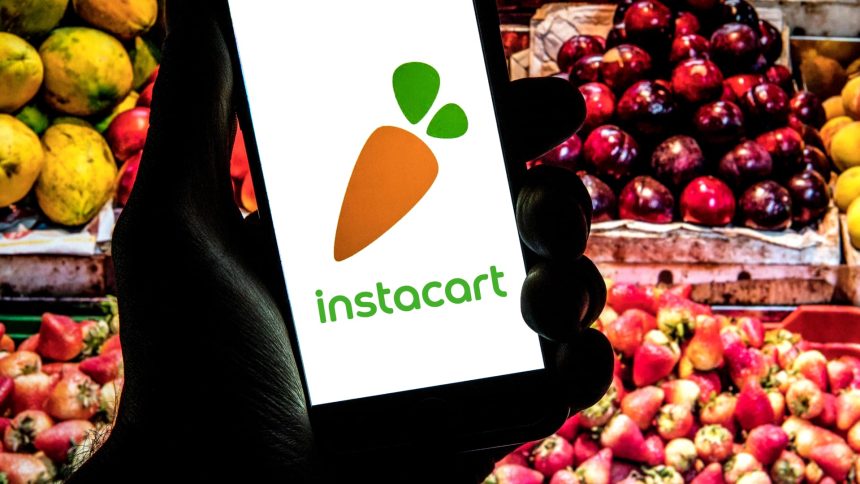Instacart shares rose 12% in their Nasdaq debut on Tuesday after the grocery delivery company’s long-awaited IPO.
The stock initially popped 40% to open at $42, but closed at $33.70 as investors locked in their initial gains.
The offering late Monday at $30 a share valued Instacart at about $10 billion on a fully diluted basis, down from a private market valuation of $39 billion at the height of the Covid pandemic in early 2021. At Tuesday’s close, the company is worth just over $11 billion.
Instacart is the first notable venture-backed company in the U.S. to go public since December 2021, and its performance is being closely tracked by venture firms and late-stage startups that have been waiting for investors’ risk appetite to return. The Nasdaq has rebounded this year after a dismal 2022, but companies that went public before the downturn are still trading at a steep discount to their peak prices. Software developer Klaviyo is expected to hit the market soon.
Founded in 2012, Instacart delivers groceries from chains including Kroger, Costco and Wegmans, had to drop its stock price dramatically to make it appealing for public market investors. In early 2021, with consumers stuck at home and loading up on delivery orders, Instacart raised money at $125 a share, from prominent venture firms like Sequoia Capital and Andreessen Horowitz, along with big asset managers Fidelity and T. Rowe Price.
Instacart has sacrificed growth for profitability, a move required to preserve cash and attract investor interest. Revenue increased 15% in the second quarter to $716 million, down from growth of 40% in the year-earlier period and about 600% in the early months of the pandemic. The company reduced headcount in mid-2022 and lowered costs associated with customer and shopper support.
Instacart started generating earnings in the second quarter of 2022, and in the latest quarter reported $114 million in net income, up from $8 million a year prior.
At $11.2 billion, Instacart is valued at about 3.9 times annual revenue. Food delivery provider DoorDash, which Instacart named as a competitor in its prospectus, trades at 4.1 times revenue. DoorDash’s revenue in the latest quarter grew faster, at 33%, but the company is still losing money. Uber’s stock trades for less than three times revenue. The ride-hailing company’s Uber Eats business is also named as an Instacart competitor.
The bulk of Instacart’s competition is coming from Amazon as well as big brick-and-mortar retailers, like Target and Walmart, which have their own delivery services. Target acquired Shipt in 2017 for $550 million.
Only about 8% of Instacart’s outstanding shares were floated in the offering, with 36% of those sold coming from existing shareholders.
“We felt that it was really important to give our employees liquidity,” CEO Fidji Simo told CNBC’s Deirdre Bosa in an interview. “This IPO is not about raising money for us. It’s really about making sure that all employees can have liquidity on stocks that they work very hard for. We weren’t looking for a perfect market window.”
The company said co-founders Brandon Leonardo and Maxwell Mullen are each selling 1.5 million, while Apoorva Mehta, another co-founder, is selling 700,000. Former employees, including those who were in executive roles as well as in product and engineering, are selling a combined 3.2 million shares.
For Instacart, the offering brought in over $420 million in cash, adding to the close to $2 billion in cash and equivalents the company had on its balance sheet as of the end of June.
WATCH: Instacart CEO says IPO is about giving liquidity to employees
Correction: The offering brought in over $420 million in cash for Instacart. An earlier version misstated the figure.
Read the full article here




